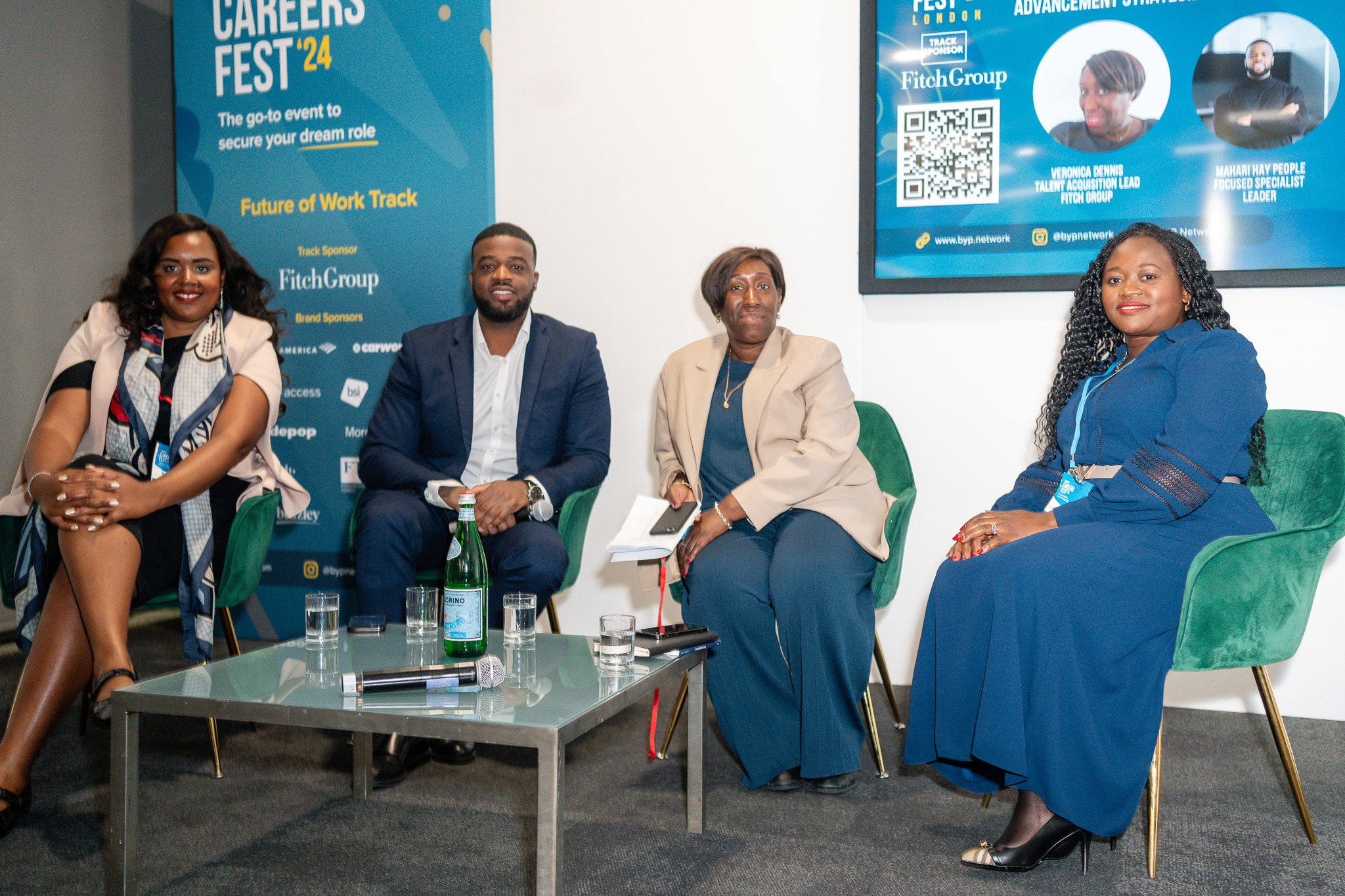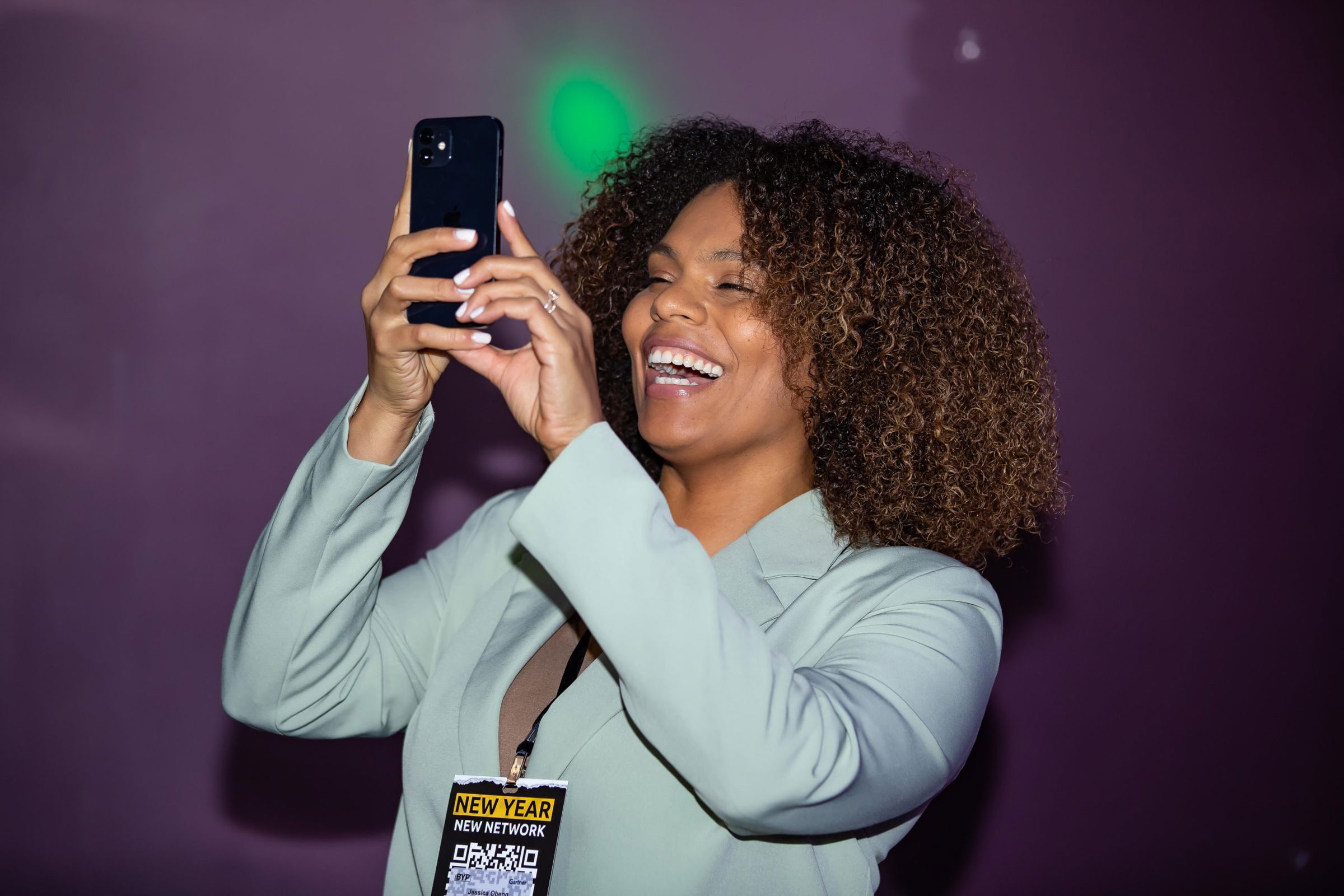The Readout – What can we learn from George Floyd’s death? Kike Oniwinde told us a story. She walked us through her life from school, university, her master’s in the United States, her time at an investment bank in London through to founding the Black Young Professionals Network. It is a story that painted a stark picture of the barriers she and her friends have faced, the overt and covert racism within the fabric of British life. It was like a map of prejudice and how it wears away at people. As a teenager, Kike was a javelin thrower for Britain, and a straight-A student. Despite strong AS Levels, neither she nor any of her black classmates were predicted an A grade at A Level by her school. “Our teacher just didn’t have faith we could hit it,” she said. “I look back on this and think, what was that about?” She eventually got her grades she needed to study economics at the University of Nottingham. But only five other people in her course of 300 students were black. “Again, why are we not here? Why did a lot of us not get the grades? Why were teachers so combative with us at sixth form?” She got the 2:1 she needed, but only 40 per cent of other black students got a 2:1 or above at Nottingham, while 75 per cent of white students did. She applied for a scheme for black and minority ethnic (BAME) graduates at an investment bank, and within the 20 applicants, only two were black. After studying for a Master’s in the United States on a sports scholarship, she came back and managed to get a job within a few weeks, but many of her black friends had been unemployed for two years. “A lot of people look like me in East London, but no-one looks like me in the bank,” she said. She only saw two options portrayed in the media for her future career as a black person, in either sports, or entertainment. Being one of the few from her friend group to successfully receive an opportunity in the corporate world, she then had to contend with the microaggressions of the workplace. “It’s people doubting you, not getting that promotion, people asking to touch your hair.” This is institutionalised. Racism in the UK is covert, and you are gaslit if you bring it up, we heard. As Tanya Nyenwa, a Tortoise journalist, said, “we live in a capitalist society, where the social order is made for, and by, white men”. To access proper housing and jobs and opportunities in our society, you are forced to go along with the system and play by the rules. Kike’s story resonated with many of the 250 young people on the call. While 2016 was Kike’s awakening in learning about the Black Lives Matter movement, and those who have died at the hands of state violence, now in 2020 “we are more passionate, angry and fed up about it,” she said. “We want accountability,” from the corporate world and from society: “no more empty statements, no more pats on the back.” Tortoise member Aritha similarly reflected on the Unilever CEO using the #BLM hashtag in a post, when he remembers growing up around products advertised by Unilever for years in South Asia, like skin whitening products, which perpetuate anti-blackness and make a fortune by doing so. Charlie Brinkhurst-Cuff, an editor at Gal-Dem, the magazine written by and for women and non-binary people of colour, echoed the demand that people’s solidarity and allyship cannot be performative. Posting the black square on Instagram is one thing, but challenging family and friends in private when something racist is said, for example, is another and the kind of proactive work we need. “Take the time to learn your shit, like I had to,” she said. “We don’t wake up knowing about the history of our country, but it’s a dark history.” She called upon people to make the most of online resources spread all over social media. “Don’t ask black people to repeat their trauma. Do not ask for the emotional labour of black people.” Tanya added her voice to this, reminding us that black people cannot decide to check in and out of anti-racism, like white people can. “We need white allies to make racism our problem,” she said. Indeed, how many deaths has it taken for this explosion of awareness to happen, asked Aaron Charles? “The body count is huge.” This wave of protests does feel different, Charlie said, to the 2016 wave of Black Lives Matter organising in the UK, but she was wary of the need for change. “Global white supremacy and capitalism are the forces at play,” she said. “Tearing them down is going to be difficult.” Tanya spoke from the heart about the lack of representation of black people in the media. “No black person has been able to ask a question in the government’s COVID press briefings,” she said. “That is shameful.” Another young journalist, Namitha Aravind, noticed how after months and months of pitching stories about race and politics in Britain, only now in the wake of George Floyd has she received her first commission. How can BME voices be properly given a platform in the media, that is not only limited to commissions about the latest race controversy? Many other young black people and people of colour came forward with their own lived experience of British racism. Ayo Kila talked about health inequalities, how black people are not heard and treated as readily when complaining of pain. (Disproportionately at risk from COVID-19, the example of 36 year old Kayla Williams comes to mind, who died in her flat in South London in late March after being told to look after herself at home because she was “not a hospital priority”.) Ayo discussed this and how in her own life, when her daughter had a skin rash, Ayo couldn’t find any pictures online of black skin with a similar rash, but only pictures of white skin. Favour described the huge double standards at play for black public figures in the limelight, in the different treatments of Michelle Obama and Melania Trump, or of Meghan Markle and Kate Middleton. This comparison of articles about Meghan and Kate’s consumption of avocados is revealing. Another issue is education; there is so little teaching about British imperialism in school curriculums today, Luke Gbedemah, who works for Tortoise, reminded us. How could the Britain of tomorrow’s understanding of race relations change if we had our eyes open about our history? Thank you all for coming, here are some resources to support black people and materials for white allies:Here is a set of mental health and self-care resources for black folks and people of colour: https://moreblminfo.carrd.co/#health The Mix counselling service offers mental health and emotional wellbeing support for all people under 25: https://www.themix.org.uk/get-support/speak-to-our-team/the-mix-counselling-serviceAn excellent thread on how white people can help from the UK, from @das.penman https://www.instagram.com/p/CAu_buhH5lD/Ten steps for being an ally that isn’t performative, by Mireille Harper https://twitter.com/mireillecharper/status/1266335563197501440If you want to go deeper, this is a very comprehensive document of reading material, films, petitions, campaign groups, donation funds and background information for the UK’s anti-racism struggle https://docs.google.com/document/d/10iIz_pFB8DzPkwddc8dcmJdJ0ZMITfTs7lvs4uyusZk/edit  Polly Curtis Editor & Partner |






